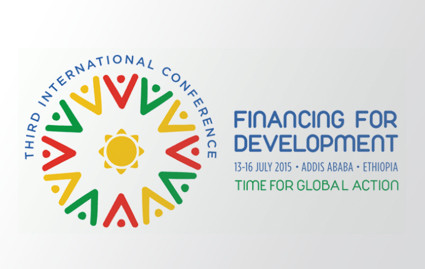
Local and regional governments support article 31 of revised draft and call for commitments to tackling the urban infrastructure investment deficit in the Financing for Development Outcome Document.
The revised draft of the outcome document of the Third International Conference on Financing for Development, to be held in Addis Ababa from 13-16 July 2015, has yielded important results for local and regional authorities. The second drafting session, held from 13-17 April 2015, worked to integrate the results of informal consultations, including contributions from the Global Taskforce, into the zero draft presented in February 2015.
The Global Taskforce welcomes progress made since the previous draft, particularly the acknowledgement,in article 31, “that in many countries, responsibilities for revenues, expenditures and investments in sustainable development are being devolved to the sub-national level and municipalities, which often lack adequate technical capacity, financing and support.” We also commend the commitment in Article 31 to “support local governments in their efforts to mobilize revenues and strengthen links between urban, peri-urban and rural areas” and to “develop mechanisms to assist them, including to strengthen capacity, particularly in areas of infrastructure development, local taxation, sectorial finance and debt issuance and management, including access to domestic bond markets.”
However, the local and regional governments of the Global Taskforce would like to see more explicit recognition of the challenge of financing rapid urbanization and of the scale of the current deficits in investments in urban infrastructures, particularly in the global South. There is an urgent need to leverage investments to provide housing and basic services to 1.2 billion new urban dwellers over the next 15 years. A failure to address the urban infrastructure investment deficit would make it virtually impossible to achieve the SDGs on poverty eradication, water and sanitation, and sustainable cities and human settlements, among others.
Public finance alone will not be enough to bridge the huge needs, but mobilizing private finance will not be feasible if the public sector is not empowered to take its responsibilities, ensure a sustainable management of territories and adequate conditions for investments.”
Fatallah Oualalou, Mayor of Rabat (Morocco) and Treasurer of UCLG, 10 April 2015, hearings with civil society and the business sector, United Nations, New York
A failure to address the urban infrastructure investment deficit would make it virtually impossible to achieve the SDGs on poverty eradication, water and sanitation, and sustainable cities and human settlements, among others.
The members of the Global Taskforce would also appreciate clearer references to access to borrowing for long-term infrastructure investments for local governments. Local governments, as the sphere of government closest to the people, are exceptionally well-placed to identify investment needs and opportunities in their communities, and to target financing effectively and accountably to foster sustainable development.
The Global Taskforce has communicated these messages for consideration in the final drafting session before the Conference in Addis Ababa on 15-19 June 2015. You can follow all of the latest news on the contributions of local and regional governments on the road to Addis Ababa in the new ‘Local Authorities’ tab of the stakeholders section of the Financing for Development Conference website.
- Global Taskforce on Local and Regional Governments: Financing Urban and Local Development: the Missing Link in Sustainable Development Finance
- GTF2016: Financing Local and Regional Governments
- Informal summary of special event on “Mobilizing local finance to implement the Post-2015 Development Agenda”
- Local Authorities contribution to the revised Draft Outcome Document
Source: Global Taskforce










